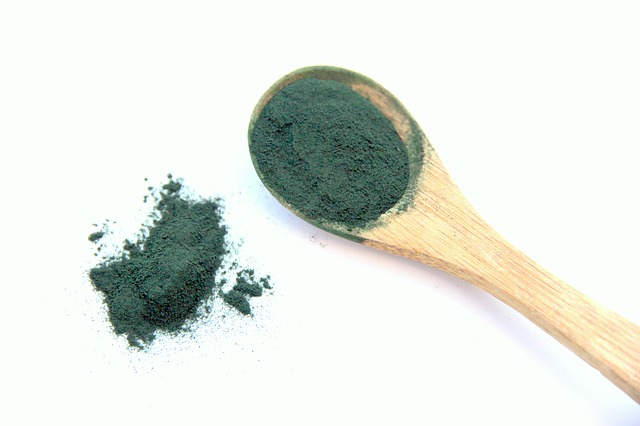What Is Spirulina And What Are Its Benefits?

This article will give you an overview of spiruline and what it can do for your body.
But how do you know if spirulina is right for you? That’s why we created this blog post: to give you everything you need to know about spirulina so that you can decide whether or not it’s worth adding to your diet. Read on to learn more about what spirulina is, its benefits, and side effects.
What is Spirulina?
Spirulina is a cyanobacteria.
Spirulina is a type of blue-green algae that comes from a type of aquatic plant called Chlorella, and contains many vitamins, minerals, and antioxidants. It contains similar properties to microalgae found in seaweed. But, spirulina has been cultivated for thousands of years, so it’s much higher in nutrient content than seaweed.
When looking for algae, it’s important to know whether or not it contains the rare or distinctive spiral shape. Spirulina that looks like seaweed is most likely a type of Chlorella that has not been modified by genetic modification.
A Look At Spirulina Benefits
Spirulina has a lot of uses, many of which are vitamins and nutrients that help promote health and detoxify the body.
Cyanobacteria are microscopic organisms, and there are around a thousand species that live in freshwater and marine ecosystems.These microscopic organisms rely on sunlight to live, and they absorb sunlight during the day and store it to use at night.
They’re also called blue-green algae, and they’re often referred to as “blue gold,” due to the high value of their minerals.
Their nutrient-rich, colorful appearance makes them especially attractive to humans. Their efficiency as sources of protein, energy, and minerals, along with their highly stable structure, make them extremely versatile sources of food.
An Introduction to Spirulina’s Benefits
Spirulina’s high protein and natural nutritional content make it a nutritional powerhouse. Since spirulina is primarily made up of carbohydrates and proteins, it can help make you feel fuller longer. It can also provide you with high levels of B vitamins, which help produce natural energy and keep your body alert.
An Important and Hard To Mention side benefit of spirulina is that it’s a great source of antioxidants, which can help reduce cell damage and improve your overall health. The cholesterol-lowering potential of spirulina is also being researched and will most likely have further implications in the future.
Spirulina’s Benefits – Health Benefits
Spirulina’s high protein content makes it a great protein source. You’ll be surprised at how much protein is in each gram of spirulina.
Here’s some background on what spirulina can do for you.
It’s grown in the open ocean and is a good source of antioxidants and nutrients. It :
- has high levels of beneficial bacteria and has been shown to regulate blood sugar levels, protect against certain types of cancer, and boost the immune system.
- is also a great source of minerals and vitamins, including iron, calcium, manganese, and vitamin B6.
- has shown to improve cognitive function in older adults.
What are the side effects of spirulina?
If you’ve ever had chlorella supplements, you’re familiar with this concern. Chlorella is a similar form of spirulina, but it has more protein than spirulina.
It’s important to point out that spirulina and chlorella supplements are completely different because they’re made from different algae. Both algae are extremely nutritious, and some users have even reported feeling an elevated energy level after consuming spirulina.
The other downside of spirulina is that it can cause dizziness, lightheadedness, or even seizures. If you experience any symptoms like this, you should stop consuming spirulina immediately.
Is it safe for children?
There are no concerns about ingesting spirulina for children.
Most people who consume spirulina experience side effects, but they’re usually very mild and transient. Some of the more common symptoms include:
- 1. Headaches
- 2. Dizziness
- 3. Fatigue
- 4. Dizziness
- 5. Chills
- 6. Body aches
- 7. Dizziness
- 8. Headaches
First and foremost, it’s illegal in the U.S. and many European countries for anyone to sell the product with the brand name spirulina. You cannot find these products on most supermarket shelves and you’ll only find them on specialty websites. They usually also contain other substances, such as vitamin and mineral powders, which can also contain dangerous chemicals.
How does spirulina work?
Spirulina is a type of blue-green algae.They contain vitamins and minerals such as calcium, phosphorous, selenium, and potassium.
Spirulina is rich in proteins, minerals, and vitamins. One teaspoon contains 10 times the recommended daily dosage of calcium, which can help reduce the risk of osteoporosis and bone fracture.
It contains 30 different types of vitamins and is high in a range of trace minerals, including copper, iron, magnesium, zinc, and selenium.
It can help to cleanse your skin, keep your skin healthy, and prevent dehydration.
That’s because spirulina’s effect is highly specific.
Should you take spirulina supplements?
If you’re unfamiliar with spirulina, there’s a lot to learn, and all of it can be quite overwhelming. Luckily, you don’t have to start with the basics and learn about spirulina’s benefits by reading about its lifestyle as well as its proven use in the book Eat to Live: The 72-Day Plan to LOSE Weight, HEAL Your Body, and REVIVE Your Mind by Dr. Joel Fuhrman and Dr. Joel Kahn.
In addition, there are a number of additional resources in the blog post below for you to reference, too.
First things first: Is it really good for you?
If you’re unsure, you’re not alone. Plenty of health bloggers and holistic health practitioners have pointed out that the Internet is often full of “Spirulina Is Best” clickbait. It’s likely that all the hype surrounding it is simply that: hype.
To be clear, while there is evidence to suggest that it could be beneficial, there’s no clear consensus. There are studies showing that it’s a good source of many vitamins and minerals (particularly Vitamin C), and it may be helpful in combating allergies, but it’s important to be aware that there are many factors that contribute to your overall health, including genes, environment, and lifestyle.
Conclusion
Related Read: What Is A Vitamin And What Are The Different Types?
This is a compilation of essential information that you should keep in mind when thinking about adding it to your diet.
This post may contain links to Amazon or other partners; your purchases via these links can benefit Serious Eats. Read more about our affiliate linking policy.
Brought to you by the people at Nootropics Resource.
Got a question or comment? Leave it in the comments section below.
It is a powerful nutritional food that offers a wide range of health benefits for humans. The most common health benefits include improved immune function, better digestion, reduced inflammation, and reduced allergies. If you’re looking into using spirulina as a dietary supplement or want to learn more about what it is and its benefits, keep reading to find out more!
Want to learn more about omega-3? Check out the next article in our Omega-3 series!




